ICCI, established in 2002 by industry experts, specializes in pre-commissioning cleaning services for new industrial projects including power plants, LNG facilities, petroleum refineries, and petrochemical plants. Visit us - https://useicci.com/
Don't wanna be here? Send us removal request.
Text

Top Chemical Cleaning Services Houston Experts
ICCI delivers professional chemical cleaning services in Houston for power plants, refineries, and industrial facilities. Our expert team ensures equipment cleanliness and operational safety. Contact us for fast, efficient, and customized solutions.
0 notes
Text
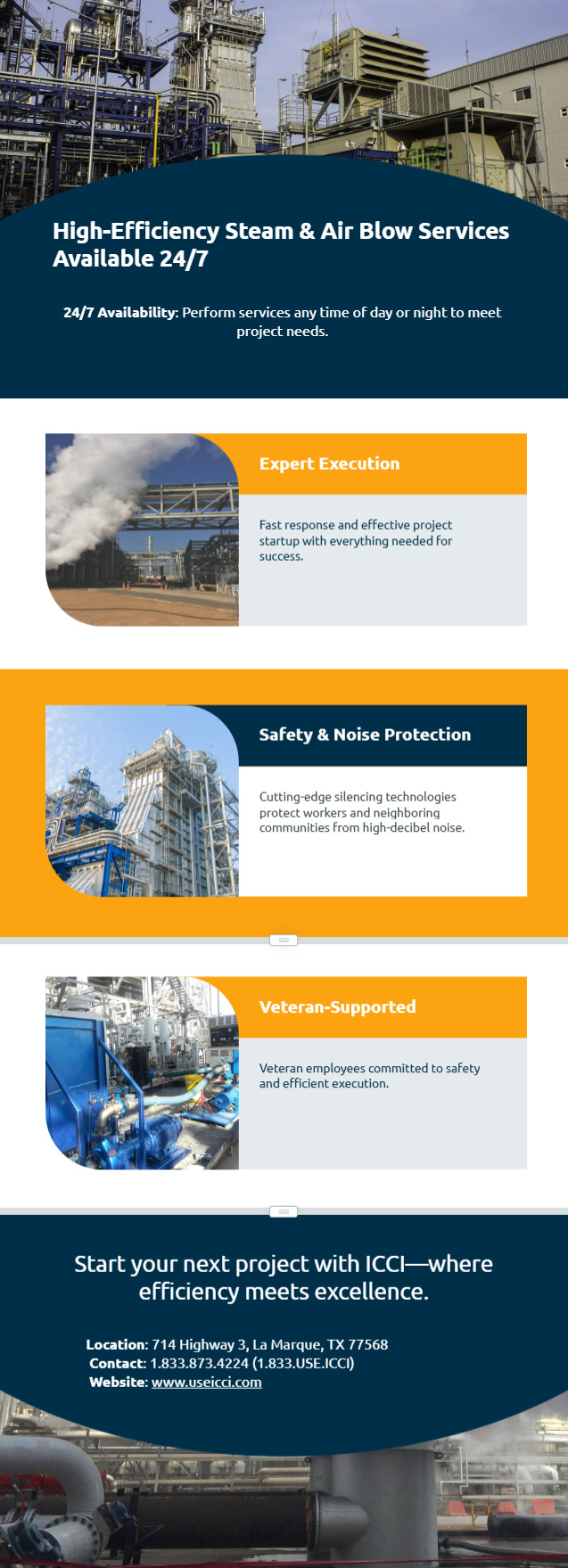
High-Efficiency Steam & Air Blow Services Available 24/7
Steam and air blow operations designed for high-pressure requirements and thorough results.
0 notes
Text
Pre Commissioning Steam Blowing for Safer Piping Systems
Pre commissioning steam blowing is a procedure used to flush steam pipelines and prepare them for safe operation. The goal is to reach target cleaning levels by directing high-pressure steam through the piping network. This creates enough force to lift and carry away unwanted particles without harming the system.
0 notes
Text
The Importance of Removing Moisture and Contaminants from Industrial Oils
To maintain oil integrity, industrial vacuum dehydration is widely used as a practical method for moisture removal. This process effectively extracts water, dissolved gases, and solid particles, preserving the oil’s physical and chemical properties.
0 notes
Text
Are Steam Cleaning Services the Secret Weapon for Industrial Efficiency in 2025?
From massive boilers to tight steam lines, steam cleaning can be customized to fit specific system needs. It's fast to deploy, doesn't leave chemical residue, and minimizes waste disposal. That's a significant win for industries seeking cleaner, greener operations.
0 notes
Text
Pre Commissioning Cleaning Services for a Smooth Industrial Startup
When preparing industrial systems and equipment for operation, thorough cleaning is a vital step. Pre commissioning cleaning plays a key role in guaranteeing that machinery functions properly and safely from the moment it is put into service.
This essential process removes contaminants that may have accumulated during construction, fabrication, or transportation, reducing the risk of damage and operational issues later.
Why Pre Commissioning Cleaning Matters
During installation, particles such as dust, welding slag, rust, and oil residues can collect inside pipes, vessels, and other components. If these impurities are not removed, they can lead to blockages, corrosion, or malfunctioning of sensitive equipment. A well-executed cleaning process helps ensure that the system is free of debris and ready for testing and commissioning, improving the reliability and longevity of assets.
Thorough cleaning before commissioning also contributes to the safety of workers and the environment. Removing hazardous residues prevents accidents that could occur during startup. Moreover, it helps meet industry regulations and quality standards, making project handover smoother and more efficient.
Techniques Used in Pre Commissioning Cleaning Services
Effective cleaning depends on the nature of the system and the type of contaminants present. Methods include flushing with water or specialized cleaning agents, mechanical cleaning, and air blowing. Skilled technicians carefully select and apply techniques suited to the project’s specific requirements. This tailored approach allows for thorough cleaning without causing damage to the equipment.

For example, water flushing removes loose particles and dirt, while chemical cleaning targets stubborn deposits like scale or grease. Mechanical cleaning, such as pigging or brushing, can physically dislodge debris from pipes and vessels. Air blowing is often used to dry components after cleaning, ensuring no moisture remains that could cause corrosion.
Each method plays a role in achieving the desired level of cleanliness, and the best cleaning services integrate multiple techniques as needed to address different challenges within a single project.
Advantages of Professional Pre Commissioning Cleaning Texas Providers
Choosing experienced pre commissioning cleaning Texas providers means working with teams familiar with local industry standards and environmental conditions. Their expertise helps meet strict quality requirements, preventing delays caused by inadequate cleaning. Additionally, they use eco-friendly products and follow safety protocols to protect workers and the environment, promoting responsible project management.
Local providers also understand the unique demands of various sectors in Texas, including oil and gas, petrochemical, and manufacturing industries. This knowledge allows for efficient scheduling and execution of cleaning tasks, helping projects stay on track and within budget.
What to Expect From Pre Commissioning Cleaning Services
A reliable cleaning service begins with a detailed inspection to assess the level of contamination. Afterward, the cleaning team follows a systematic plan to remove residues and verify cleanliness through testing. Documentation and reports are provided to confirm that the system meets cleanliness standards, supporting smoother commissioning and handover.
This transparency is valuable for project managers and clients, offering confidence that all necessary steps have been completed correctly. It also serves as a reference for future maintenance and audits.
Take the Next Step for a Successful Commissioning
Proper cleaning is a foundational element of successful industrial commissioning. Investing in professional pre commissioning cleaning services helps avoid costly repairs and downtime while ensuring equipment performs as intended. Reach out today to discuss how expert cleaning solutions can support your project’s goals and timelines. Your equipment deserves the best start possible
0 notes
Text
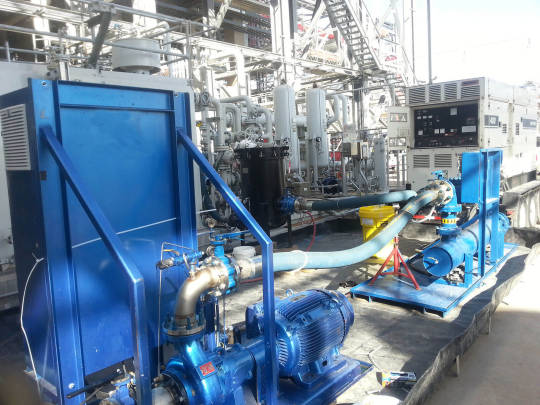
Expert Rapid Oil Flushing Services for Industry
Ensure peak equipment performance with our rapid oil flushing services. ICCI delivers high-velocity oil flushes to remove contaminants and protect critical systems. Trusted nationwide.
0 notes
Text
Top Benefits of Hiring Professional Steam Blowing Services
Facilities that hire professional steam blowing services typically experience smoother startups and more stable long-term operations. This translates into reduced downtime, fewer corrective maintenance incidents, and improved productivity.
0 notes
Text

Expert Chemical Cleaning Houston TX Services
Get top-notch chemical cleaning in Houston TX for industrial systems, pipelines, and equipment. Our certified team ensures safety, efficiency, and compliance. Call now!
0 notes
Text
Understanding Nautilus Hydropig: Advanced Cleaning For Industrial Pipelines
As industrial systems continue to grow in complexity and regulatory standards become more demanding, the need for advanced cleaning technologies becomes increasingly vital. The Nautilus Hydropig, especially when used in tandem with Nautilus Hydrolazing, provides an efficient, environmentally conscious, and highly effective solution for industrial pipeline cleaning.
0 notes
Text
The Science Behind Vacuum Dehydration: Removing Water from Oil Effectively
Water contamination in oils can be detrimental to the performance and longevity of industrial systems. From turbine oils to hydraulic systems, water introduces rust, corrosion, and can compromise fluid efficiency. A common solution to this problem is vacuum dehydration. This process efficiently removes water from oils, maintaining system integrity and preventing costly damage.
What Is Vacuum Dehydration?
Vacuum dehydration is a specialized technique used to remove water from oils, typically hydraulic oils, lubricants, and transformer oils. The process is highly effective at extracting water, even at low concentrations, and is generally used when traditional filtration or separation methods are insufficient.
The principle behind vacuum dehydration is relatively simple: by applying a vacuum, water is evaporated at a lower temperature than it would under normal atmospheric pressure. This prevents oil degradation while efficiently removing the water content. The result is cleaner oil that helps improve system performance, reduce maintenance costs, and extend the life of machinery and equipment.
How Does Vacuum Dehydration Work?
The process of vacuum dehydration involves several steps that make it effective in extracting water from oil:
Introduction of Contaminated Oil: The oil, containing water and other contaminants, is drawn into a vacuum chamber.
Heating: The oil is gently heated to a specific temperature, which helps in the evaporation process.
Vacuum Application: A vacuum pump reduces the pressure in the chamber, causing the water in the oil to vaporize at a lower temperature than it would under normal atmospheric conditions.
Water Separation: Once the water evaporates, it condenses on a collection surface, separating from the oil. The condensed water is then safely removed, leaving clean, dry oil.
Return of Clean Oil: The now-purified oil is returned to the system or stored for reuse.
Why Choose Vacuum Dehydration Services?
The need for vacuum dehydration services goes beyond simply removing water. By using this method, industries can achieve the following:
Prevention of Equipment Damage: Water in oil can cause severe damage to critical equipment, such as turbines, gears, and valves. Vacuum dehydration helps keep oils free of moisture, preventing rust and corrosion in machinery.
Extended Oil Life: Water accelerates the degradation of lubricants and hydraulic fluids. Removing moisture ensures that the oil remains in optimal condition for longer, delaying the need for oil changes and reducing operational costs.
Improved System Efficiency: Clean oil means fewer operational problems. Vacuum dehydration services help maintain the ideal viscosity of oils, ensuring smoother performance and less friction in machinery.
Cost Savings: Preventing equipment breakdowns and oil degradation can significantly reduce maintenance costs and downtime, providing a cost-effective solution for industries that rely on high-performance oils.
Applications of Vacuum Dehydration
Vacuum dehydration is widely used across various industries that rely on oil for operation, including:
Power Generation: Vacuum dehydration services are critical for maintaining turbine oils in power plants. Clean oils prevent turbine failure and help improve efficiency.
Hydraulic Systems: Hydraulic systems, which operate under high pressure, require moisture-free oil to prevent system malfunctions. Vacuum dehydration ensures that hydraulic oils are kept in pristine condition.
Oil and Gas: The oil and gas industry also relies on vacuum dehydration to maintain the quality of drilling fluids and lubricants, ensuring that machinery operates efficiently in harsh environments.
Best Practices for Vacuum Dehydration
To get the best results from vacuum dehydration, it's essential to follow best practices:
Proper Monitoring: Regularly check the water content in oils to ensure that dehydration processes are scheduled before contamination becomes problematic.
Correct Temperature and Pressure: The temperature and pressure within the vacuum chamber should be carefully controlled to prevent oil degradation while maximizing water removal.
Equipment Maintenance: Ensure that the vacuum dehydration system itself is well-maintained to avoid any potential issues during the dehydration process.
Conclusion
Vacuum dehydration services are indispensable in industries where oil contamination is a concern. The process ensures that oils remain free from water and other contaminants, safeguarding equipment, reducing maintenance costs, and enhancing overall system performance. By removing moisture, vacuum dehydration plays a crucial role in prolonging the lifespan of lubricants and hydraulic fluids, making it a key element in ensuring operational efficiency.
For industries such as power generation, oil and gas, and manufacturing, choosing reliable vacuum dehydration services ensures that their machinery continues to operate at peak performance while minimizing downtime and costly repairs. As technology evolves, vacuum dehydration remains an efficient, proven method for improving fluid cleanliness and enhancing the longevity of vital industrial systems.
0 notes
Text
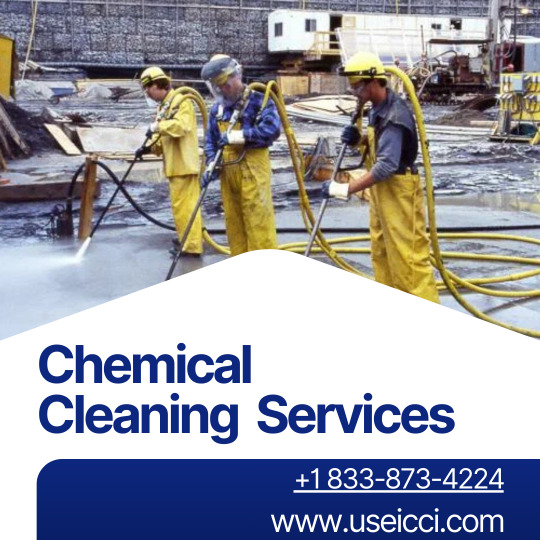
Chemical Cleaning Services: Enhancing System Performance and Longevity
Chemical cleaning services are essential for maintaining and optimizing the performance of industrial systems, equipment, and piping. This process involves using specialized chemicals to remove stubborn contaminants such as scale, rust, grease, and other deposits that accumulate over time in heat exchangers, boilers, piping systems, and other critical infrastructure. Chemical cleaning is particularly important in industries like power generation, oil and gas, petrochemical, and manufacturing, where system efficiency and reliability are paramount.
0 notes
Text
How Steam Blow Service Ensures System Cleanliness and Performance
Industrial operations, especially in sectors like power generation, petrochemicals, and oil and gas, rely heavily on complex piping systems and high-performance equipment. Before these systems are commissioned, they must undergo rigorous cleaning to remove construction debris, welding slag, rust, and other contaminants. One of the most effective and widely adopted methods for achieving this is the steam blow service. When executed correctly, it not only ensures system cleanliness but also significantly improves long-term performance and operational safety.
What Is Steam Blow Service?
Steam blow service is a high-pressure cleaning process that uses steam to remove residual contaminants from piping and associated equipment. It is typically performed after installation but before the initial system startup.
The objective is to dislodge and carry out any foreign material that could otherwise cause damage to turbines, valves, or other sensitive components during operation.
This process involves generating controlled, high-velocity steam and directing it through the system in a calculated sequence. The force of the steam cleanses the interior surfaces and carries dislodged materials to a discharge point where they can be collected and examined for inspection.
Why System Cleanliness Is Critical
Contaminants left behind in new or overhauled piping systems can lead to major problems. These include erosion of internal surfaces, clogging of control valves, and even catastrophic equipment failure. A clean system ensures a smooth, uninterrupted start-up and avoids potential downtime caused by avoidable mechanical issues.
This is particularly important in high-risk, high-capacity environments like power plants and chemical facilities where equipment operates under extreme pressure and temperature conditions. In such settings, even a small oversight can result in extensive damage and financial loss.
The Steam Blowing Procedure in Texas
Texas, with its vast network of refineries, power plants, and industrial complexes, has a strong demand for specialized pre-commissioning services. The steam blowing procedure Texas facilities follow typically adheres to industry standards such as those from ASME and ASTM.
In Texas-based operations, the process includes several important steps:
System Evaluation and Planning Engineers assess the system’s configuration, pressure ratings, and cleanliness requirements before designing a customized steam blow plan.
Temporary Steam Setup Temporary steam generators and piping are installed to avoid contamination of the actual operational system.
High-Velocity Steam Blow Controlled bursts of steam are released to remove debris. The process is repeated until cleanliness indicators—often verified by target plates or visual inspections—are met.
Documentation and Reporting After successful cleaning, detailed reports and cleanliness certificates are provided to validate the procedure.
Key Benefits of Steam Blow Service
Enhanced Equipment Longevity By eliminating abrasive and corrosive particles, steam blow services protect system components from premature wear.
Improved Start-Up Reliability Clean systems perform better and have fewer issues during initial commissioning.
Regulatory Compliance Meeting cleanliness standards is often a regulatory requirement in industrial sectors. Steam blowing ensures these criteria are met.
Operational Efficiency Systems cleaned with steam operate more smoothly and maintain optimal performance, reducing energy waste and maintenance costs.
Choosing the Right Service Provider
When considering steam blow service, it’s essential to partner with a provider experienced in handling diverse industrial systems. They must be knowledgeable about safety protocols, system behavior under high-pressure conditions, and the specific requirements of facilities in Texas.
Local familiarity with the steam blowing procedure Texas industries demand ensures not just compliance, but also seamless integration into project timelines.
Final Thoughts
As industries continue to expand and infrastructure becomes more complex, ensuring the cleanliness and performance of piping systems is non-negotiable. Steam blow service is a proven, effective solution that prepares systems for safe and efficient operation.
Especially in high-stakes environments like those found in Texas, following a well-defined steam blowing procedure guarantees system readiness, protects critical components, and sets the stage for long-term operational success
0 notes
Text
Understanding Steam Blow Service and Procedure in Texas
In industrial processes, steam blowing is an essential maintenance procedure used to clean piping systems, ensuring the efficient operation of steam turbines, boilers, and other critical equipment. A steam blow service involves the use of high-pressure steam to remove any debris, dirt, and impurities that may accumulate in the system during installation or routine operations. In Texas, where industries rely on robust and reliable steam systems, understanding the steam blowing procedure is crucial for maintaining the integrity and longevity of equipment.
What is Steam Blowing?
Steam blowing is the process of using high-pressure steam to clear piping systems, typically in newly installed or repaired steam systems. The steam, generated at high pressures, is blown through the pipes at high velocity to remove any construction debris, oil, dirt, or other contaminants that may have been left behind after installation or maintenance. It is a necessary step before a system can be safely and efficiently put into operation.
The procedure ensures that the system is clean, free of any impurities, and capable of performing at its optimal capacity. It also reduces the risk of potential damage to sensitive components like turbine blades and valves, which could be impacted by foreign particles.
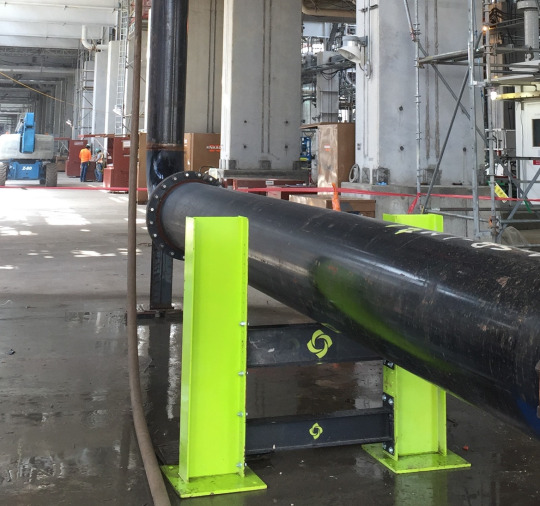
Why is Steam Blowing Important in Texas?
In Texas, the industrial sector relies heavily on steam systems, especially in power generation, petrochemical, and manufacturing industries. The need for a reliable steam system is paramount as even a small blockage or buildup of impurities can lead to costly downtime and reduced efficiency. Steam blowing helps mitigate these risks by ensuring that the system is free of contaminants.
Texas’s industrial plants operate in high-demand environments, often requiring large amounts of steam. This makes it even more critical to ensure that all components are thoroughly cleaned before the system is fully engaged. Additionally, the harsh Texas weather conditions can cause environmental factors like dust and debris to accumulate in equipment. As a result, steam blow service in Texas plays a crucial role in preserving the life of expensive machinery.
The Steam Blowing Procedure in Texas
The steam blowing procedure in texas typically follows a series of well-defined steps, designed to ensure that the piping system is properly cleaned and prepared for use. Here is an overview of the procedure:
Preparation and Inspection Before starting the steam blowing process, it’s essential to prepare the system. Technicians inspect the piping network, ensuring there are no leaks or weaknesses. All valves, flanges, and connections are checked for proper sealing. The entire system is set up to withstand the high-pressure steam that will flow through it.
System Flushing In some cases, a flushing procedure may be carried out before steam is introduced. This step is particularly important if the piping system is new and may contain installation debris or if the pipes have not been cleaned in a while. Flushing is done with water to remove large particles and dirt.
Steam Injection High-pressure steam is then injected into the piping system. The steam is blown at a velocity that is capable of dislodging any remaining particles inside the pipes. This is the most critical step in the steam blowing procedure, as the high-pressure steam ensures the system is completely cleaned.
Monitoring and Observing During the steam blowing process, technicians monitor the system closely. They track the steam flow, pressure, and any debris being ejected from the pipes. The goal is to ensure that all contaminants have been effectively removed.
Post-Blowing Inspection After the steam blowing process is complete, a final inspection is conducted to verify that the system is free of contaminants and fully operational. The pipes are checked for leaks, and the equipment is tested to ensure it is functioning correctly.
System Shutdown and Cleaning Once the steam blowing procedure is completed, the system is allowed to cool down, and any remaining water is removed. The pipes are thoroughly cleaned and dried, making sure they are ready for normal operation.
Conclusion
Steam blow services are a crucial part of maintaining the efficiency and longevity of steam systems in Texas. By following a meticulous procedure, industrial plants can ensure that their equipment runs smoothly, avoiding downtime and costly repairs. Whether it’s a newly installed system or one that’s been in service for years, a proper steam blow procedure is vital to ensure the highest performance standards are met. For industries in Texas, investing in a reliable steam blow service is a step toward ensuring optimal operational efficiency and protecting valuable equipment.
0 notes
Text

Reliable Hot Oil Flushing Services for Optimal System Performance
Find clean, efficient, and contaminant-free lubrication systems with our professional hot oil flushing services, enhancing equipment longevity and reliability. Visit us for such oil flushing services
0 notes
Text
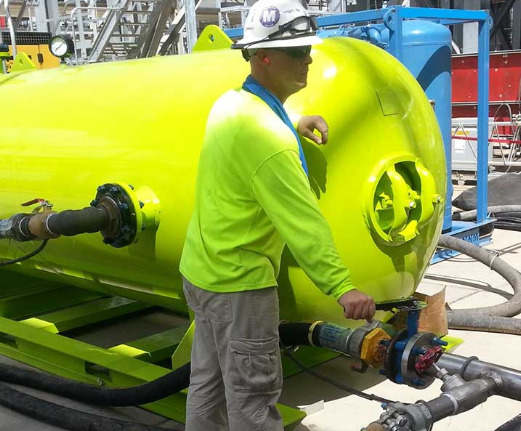
Efficient Steam Blow Services for Clean & Safe Operations
Ensure optimal performance and safety with our high-velocity steam blow services, removing debris and contaminants from pipelines and systems.
0 notes
Text

Nautilus Hydro Pigging: Advanced Pipeline Cleaning
Optimize pipeline maintenance with Nautilus Hydro Pigging, the innovative solution for efficient debris removal and enhanced flow in industrial systems.
0 notes